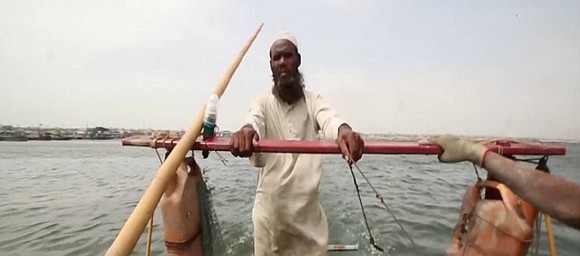Rohingya Violence a 'Textbook Example of Ethnic Cleansing,' UN Chief Says
CNN/Stylemagazine.com Newswire | 9/11/2017, 7:34 a.m.
By Ben Westcott and Karen Smith, CNN
(CNN) -- The ongoing Myanmar military operation against the minority Rohingya people appears to be a "textbook example of ethnic cleansing," the UN human rights chief said Monday.
United Nations High Commissioner for Human Rights Zeid Ra'ad Al Hussein said the full humanitarian situation in Rakhine state couldn't be fully assessed due to Myanmar's refusal to give access.
"Last year I warned that the pattern of gross violations of the human rights of the Rohingya suggested a widespread or systematic attack against the community, possibly amounting to crimes against humanity," he said in his opening statement at the Human Rights Council 36th session.
At least 294,000 Muslim Rohingyas have fled across the border to Bangladesh since fighting broke out on August 25, according to a situation report from the Inter Sector Coordination Group (ISCG) in Bangladesh.
They've brought with them stories of death and destruction, including multiple accounts of rape and the murder of children. Satellite photos from Human Rights Watch show entire villages razed to the ground.
The ISCG in Bangladesh said $77 million in funding was needed to deliver urgent aid to the new arrivals.
Myanmar: We don't negotiate with terrorists
On Sunday, Myanmar's government bluntly rejected a ceasefire proposed by militants in Rakhine after more than two weeks of bloodshed.
Rohingya militants known as the Arakan Rohingya Salvation Army (ARSA) had offered to pause "offensive military operations" until October 9 to give access to aid groups to address the "humanitarian crisis."
The statement called on the Myanmar government to do the same.
However, Zaw Htay, the spokesman for State Counselor Aung San Suu Kyi, told CNN they would not be accepting the offer.
"We have no policy to negotiate with terrorists," Zaw Htay told CNN.
Yanghee Lee, the United Nations Special Rapporteur on Human Rights for Myanmar, said Friday that at least 1,000 people had been killed in the violence, though she said that figure is "very likely an underestimate."
"Figures are difficult to verify because of lack of access to the affected areas," she said.
The Myanmar government said 421 people had died.
World's most persecuted people
Rohingya Muslims are considered to be among the world's most persecuted people.
The predominantly Buddhist Myanmar considers them Bangladeshi but Bangladesh says they're Burmese. As a result, they're effectively stateless.
On August 25, Rohingya militants killed 12 security officers in co-ordinated attacks on border posts, according to Myanmar's state media.
In response, the military intensified "clearance operations" against "terrorists," driving thousands of people from their homes.
The US Department of State said Saturday it is "very concerned" about the violence unfolding in the region, but stopped short of criticizing the country's government or its de facto leader Aung San Suu Kyi.
The State Department is working with international partners, including the Office of the United Nations' refugee agency, the International Committee of the Red Cross and the International Organization for Migration, to provide emergency assistance for the displaced, the statement said.
Aung San Suu Kyi has repeatedly come under criticism for her lack of action to help the Rohingya, a stark contrast to her previous image as a champion of human rights.
She has repeatedly denied accusations of human rights abuses against the Rohingya, and in April denied to the BBC that ethnic cleansing was taking place.
Some observers point out that the Rohingya issue is so heated in Myanmar that the Nobel laureate would lose her popularity, and eventually possibly her position, if she backed the ethnic minority.




